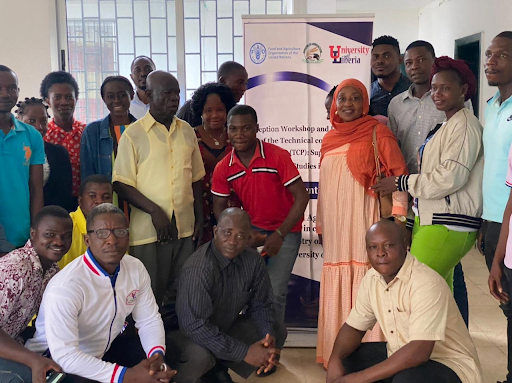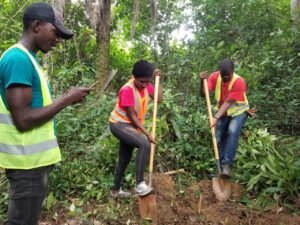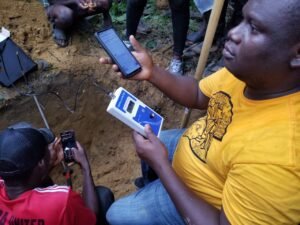Introduction: The one-day inception workshop/Program launch concept note was developed,...
Read MoreLIBERIAN SOIL INFORMATION SYSTEM (LibSIS)
The Liberian Soil Information System (LibSIS) was launched in 2023 to provide comprehensive understanding of Liberia’s soil resources for evidence-based decision-making in agriculture and forestry. Developed in collaboration with the Ministry of Agriculture, University of Liberia, the Food and Agriculture Organization of the United Nations (FAO) and its Global Soil Partnership, LibSIS compiles existing and fresh soil data using digital mapping techniques and is fully integrated with the Global Soil Information System (GloSIS).








ABOUT US
Soil information system provides a convenient infrastructure to share soil information and promote informed decisions in soil and agriculture management.




The Project
Strengthening soil analysis and information systems to enhance sustainable soil management and support evidence based decision making in Liberia’ intends to build on the need to have a better understanding of the soil conditions in Liberia to preserve national soil resources from degradation. By addressing key technical concerns of the environmental and agricultural sector, the project provides strong technical and related human capacity building to the existing government programs and initiatives. A key outcome of the project is the Liberian Soil Information System (LibSIS). This project contributes to the global efforts to achieve the Sustainable Development Goals (SDGs) and especially SDGs 2, 12, 13 and 15. By building national capacities in soil analysis and the practice of sustainable soil management, the project directly contributes to the work of the Global Soil Partnership (GSP) and to the FAO’s 4 Betters. The work also contributes to realizing the global and national climate mitigation commitments by generating, among others, necessary carbon fluxes data for the REDD+ programs implementation.
Liberia Soil information System is an online infrastructure for sharing soil information. It bridges the gap between generation of soil information and uses of the information and consequently improves decisions on soil use and management. Recently, it has been recognized as an essential component of strategies for promoting access to soil data. Hitherto, soil data and information were perceived as scarce, secret, and expensive information that was accessible only to top soil scientists. This has now been demystified by soil information systems across the world.

Stakeholder Engagements
Stakeholder engagements; TCP, (Technical cooperation Program) is a catalytic project that seeks to address possible short come of government intervention. This pilot is key to strengthen and identified gaps for national development. Soils in Liberia are posed to natural threats such as; the effect of climate change, soil erosion, saline-sodic soils, low fertility as compared to other countries.In order to achieve this goal, it is desirable for a collective efforts of the following land users and soil actors for a systemic and comprehensive studies :
- Ministry of Agriculture, RL
- University of Liberia
- Central Agricultural Research Institute
- Food & Agriculture Organization (FAO)
RECENT ACTIVITIES
Optimizing Land Use: Capability and Suitability Assessment in Nimba County, Liberia
The photograph here offers a glimpse of our dedicated research...
Read MoreUnearthing Patterns: Soil Survey and Mapping in Nimba County, Liberia
Pictured here is our enthusiastic research team in Namba County,...
Read MoreAgricultural Innovation: Crop Suitability Assessment in Nimba County, Liberia
This image spotlights our industrious research team in the dynamic...
Read MoreProtecting Resources: Soil and Water Conservation in Nimba County, Liberia
The photograph here vividly captures our team’s tireless efforts in...
Read MoreField Work: Soil Analysis and Testing in Nimba County, Liberia
The photograph here depicts our devoted team in action in...
Read MorePARTNERS









